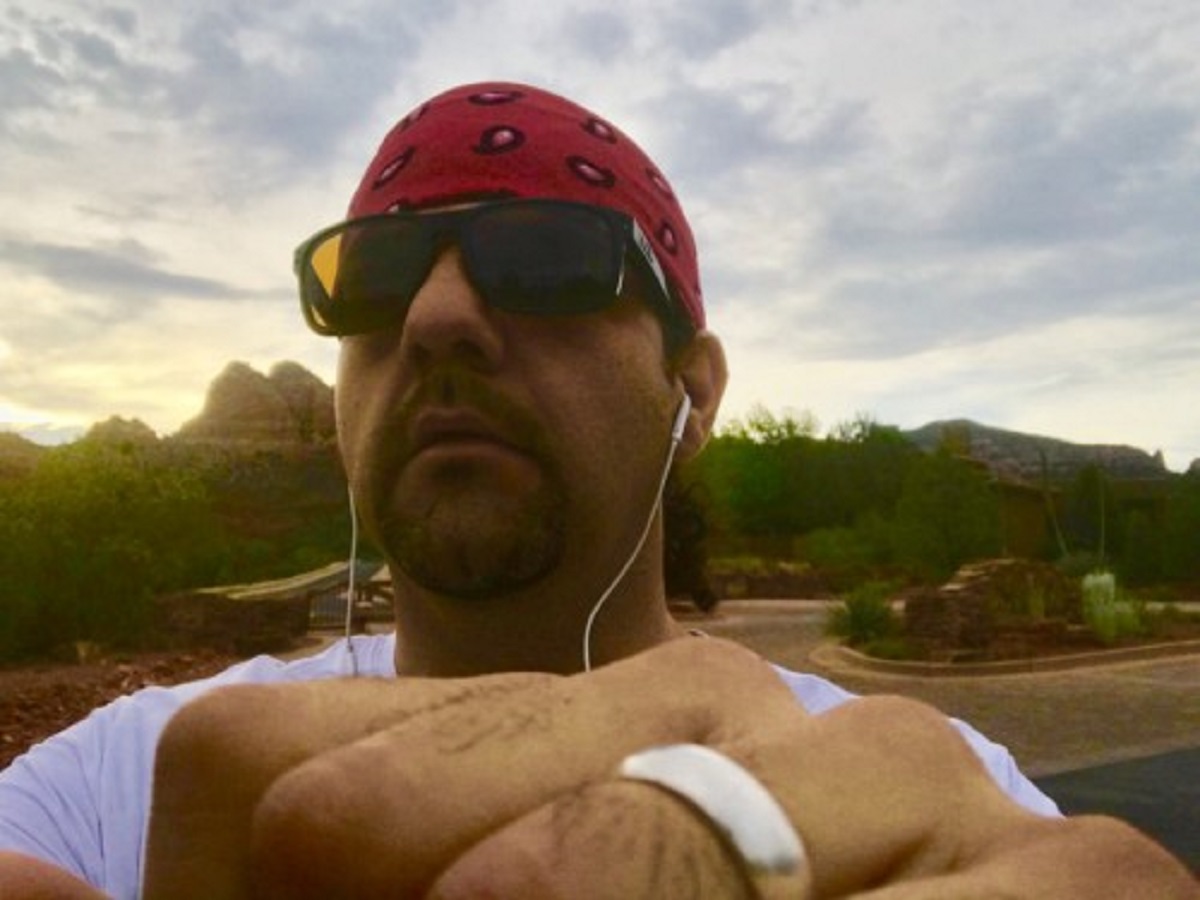I was in Sedona, AZ, a week before the Fourth of July for our statewide Sierra Club chapter meeting. On the evening of my arrival, I honored the original indigenous people and their stories with some tobacco offering to the land and medicine songs that have been shared with me. At sunrise, I woke for a jog before our 9 am meeting. Unfortunately, that morning I was confronted by a white male who questioned my presence and a slow-strolling sheriff vehicle, both of which intimidated me as I jogged back to my Airbnb room in the upscale Village of Oak Creek.
I was wearing dry fit shorts and jogging in my strap-on sandals when a white male in his early thirties stopped me along the road asking me, “Can I help you with anything? Are you lost?” I responded, “No.” His intimidating gestures of gripping his steering wheel followed with, “Where are you going?” I responded, “to the top of the school to see the view of Cathedral Rock.” I told this man, who claimed he worked at the school, that I had a friend who used to work at the private school as a teacher. The Sierra Club chapter quarterly meetings had been held at the Verde Valley School for a few consecutive years. This year the meeting was not held at the school but I felt comfortable jogging to the school and did not anticipate an unwelcoming experience. I was interested in seeing the school for my first time, given that so many Sierra Club folks had spoken about how great the views were from staying there in the past. As a teacher who currently manages a restoration ecology program at a public high school in Tucson, I wanted to see the layout and enjoy the view of Cathedral Rock that folks from our chapter had talked so much about. My excitement was shattered by this intimidating white male who told me that the road I was jogging on was private property. I asked, “what are you suggesting?” His response in an unfriendly tone, “I’m just letting you know that you are on private property.” I missed the small red sign near the intersection that read “private property, no trespassing, violators will be prosecuted.” At that moment, I looked down the road and started walking back down to the intersection. The white male driving a blue Subaru waited for me at a stop sign at the bottom of the road. He drove off and returned, crossing me and then passing me up from behind. Within 5 minutes, a Yavapai County Sherriff slowly crossed me and also passed me up from behind. My views of the sacred rocky red mountains and peaks turned frightening.

This incident forced me to question whether if I had looked differently, would I have been stopped and questioned that early morning? Did locals feel threatened by my appearance? Why am I volunteering my time for a predominately white environmental conservation organization that claims to care about diversity, equity, and inclusion? How do these microracial aggressions impact other people of color working in white privilege spaces? That morning at the chapter meeting, I introduced myself while honoring and acknowledging the indigenous people of the land. Throughout our meeting, I attempted to check my own privilege while also validating the voice of the only woman of color also sitting at the decision-making table. I was actively recruited by well-intentioned leaders of Sierra Club that want to shift the culture and push in the direction of diversity, equity, and inclusion. Incidents like the one I encountered bring to light how the push for diversity can harm people of color while continuing to benefit those with white privilege. The push for equity can harm those that have the least, while accommodating those with economic security. Let's be more critical of the issue of diversity, equity, and inclusion. Let's not assume that including people of color will make organizations safer and more marketable. We must understand how racism operates. This is a call to all white people in the environmental movement: Take a moment to reflect on your power, privilege, and colonial legacy. For people of color and oppressed minority groups, engage in the work that you believe will lead to the liberation of yourself and community.
